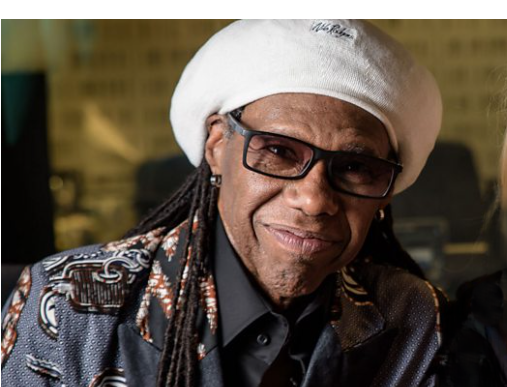In addition to reflecting his musical career, Nile Rodgers’ anticipated net worth of $200 million in 2025 is evidence of the extraordinary effectiveness of artistry when combined with fortitude, foresight, and flexibility. His career has a remarkable resemblance to a vast river that never stops flowing, occasionally changing its route but constantly gaining force and momentum.

As one of Chic’s co-founders, Rodgers helped to define disco’s distinctive sound and produced dance songs like Good Times and Le Freak that are still popular today. The Notorious B.I.G., Will Smith, and innumerable others sampled these tunes, which not only made clubs happy but also served as the foundation of hip-hop’s heyday. These songs have proved incredibly resilient, earning royalties year after year and guaranteeing the continued financial strength of his collection.
Nile Rodgers Net Worth 2025
| Attribute | Details |
|---|---|
| Full Name | Nile Gregory Rodgers Jr. |
| Date of Birth | September 19, 1952 |
| Age | 72 |
| Birthplace | New York City, U.S. |
| Occupations | Musician, Songwriter, Producer, Philanthropist |
| Primary Band | Chic (Co-founder) |
| Genres | Disco, Funk, R&B, Soul, Rock, Pop, Electronic Dance |
| Instruments | Guitar, Vocals |
| Years Active | 1972–present |
| Net Worth (2025) | $200 million |
| Career Highlights | Producer for Madonna, David Bowie, Duran Duran, Daft Punk |
| Awards | 3 Grammy Awards, Rock & Roll Hall of Fame, Songwriters Hall of Fame |
| Global Sales | Over 750 million albums & 100 million singles |
| Website | nilerodgers.com |
With remarkable adaptability, Rodgers made the move to produce for some of the biggest names in the world in the 1980s. His work on David Bowie’s Let’s Dance demonstrated his capacity to propel musicians into completely new cultural arenas, while his partnership with Madonna on Like a Virgin launched her into superstardom. These initiatives were especially inventive because they combined popular appeal with artistic ambition in ways that created rather than followed trends.
Rodgers’ incredible versatility is demonstrated by his subsequent career. He returned to prominence in 2013 as Daft Punk’s Get Lucky became a worldwide hit, winning him three Grammys and demonstrating that his sense of melody and rhythm was still very effective at drawing in listeners from all over the world. In many respects, this partnership served as a reminder that Rodgers had never really left, rather than a comeback. Whether behind the scenes, on stage, or in the studio, his presence in music has always been dependable.
His sources of income are many. While production credits from Madonna, Duran Duran, Diana Ross, and others continue to bring in money, Chic’s catalog royalties continue to provide as a steady basis. Furthermore, he continues to travel the world with Chic, and his most recent endeavors—like his role in a Blues Brothers musical—broaden his impact in the theater industry. Therefore, his riches is founded on a highly effective concept of constant reinvention rather than just previous glories.
Rodgers has also benefited greatly from his ability to form alliances. He reached younger audiences by working with artists like Pharrell Williams and Daft Punk, making sure that his music has a nostalgic yet modern flavor. These partnerships demonstrate his ability to transcend generations, demonstrating his remarkable relevance over time.
In addition to recognizing his accomplishments, awards and distinctions have elevated his profile. The esteem he enjoys around the world is demonstrated by his inclusion into the Songwriters Hall of Fame and the Rock & Roll Hall of Fame, as well as by international honors like France’s Ordre des Arts et des Lettres. His commercial attractiveness is further enhanced by these accolades, which establish his name as a byword for excellence and power.
The perseverance behind Rodgers’ story is equally as remarkable as the wealth. Industry insiders advised him early in his career that a Black band couldn’t make it in disco or rock. However, Rodgers and his late colleague Bernard Edwards made Chic a defining force by believing in his sound and overcoming obstacles. His perseverance silences skepticism far more quickly than any argument—his music itself became the evidence of what was possible.
Rodgers is still going strong at 72. He continues to revolutionize industries by automating new flows of sound and culture, as evidenced by his touring schedule, producing endeavors, and creative endeavors. The fact that younger musicians like Mark Ronson, The Weeknd, and Pharrell publicly display his impact shows that Rodgers’ influence has not only persisted but has also been significantly enhanced by those he has influenced.
His legacy is further cemented by philanthropy. Using his position to make a bigger difference, he has backed artistic endeavors and educational programs. He has embodied the notion that success is determined by meaningful contribution rather than just financial gain by giving back, so closing the gap between fame and service.
